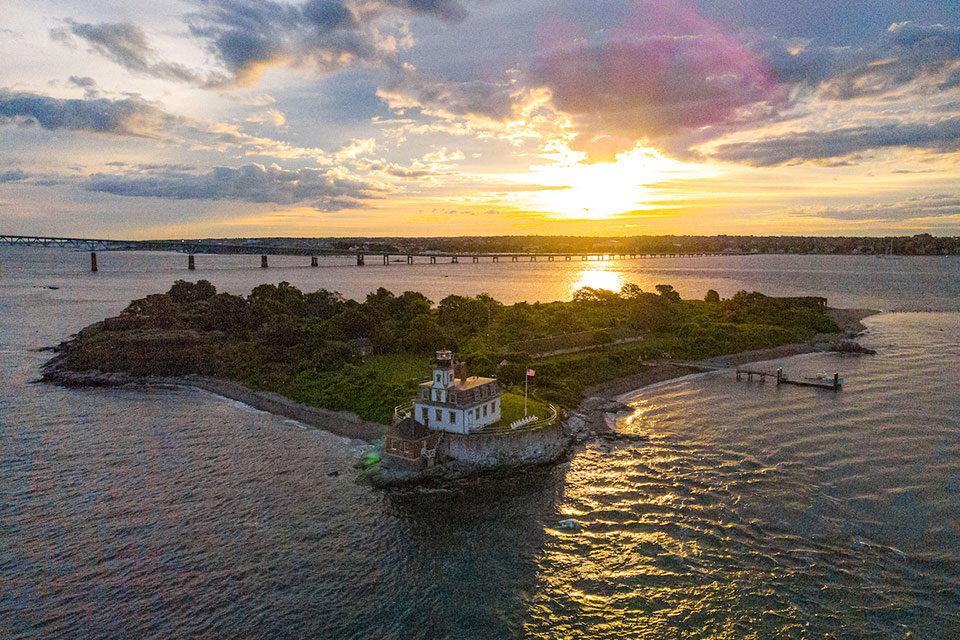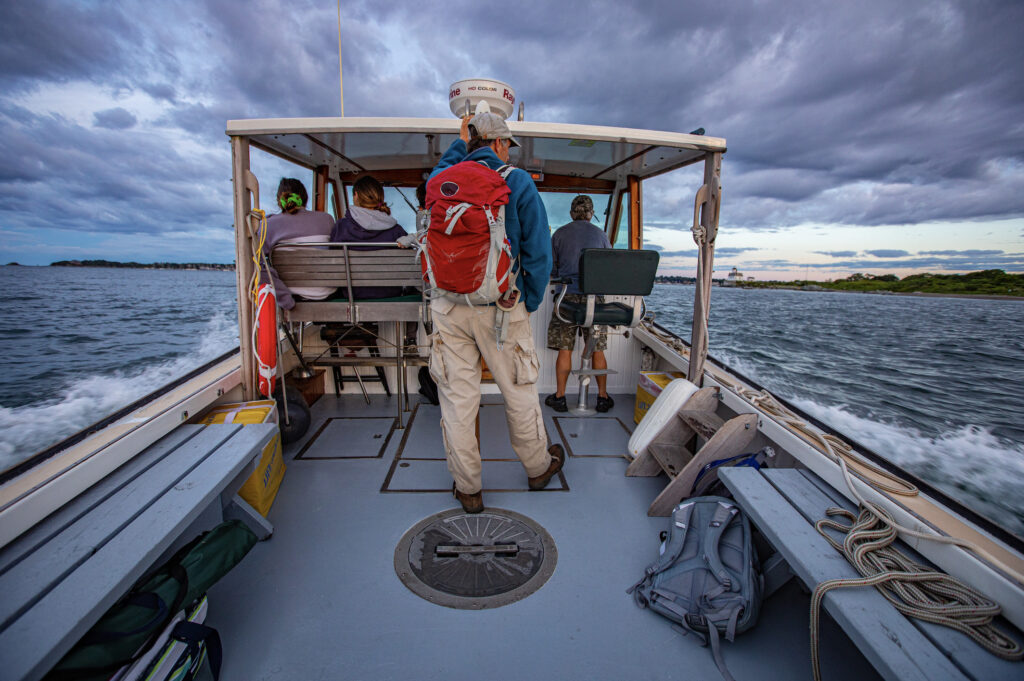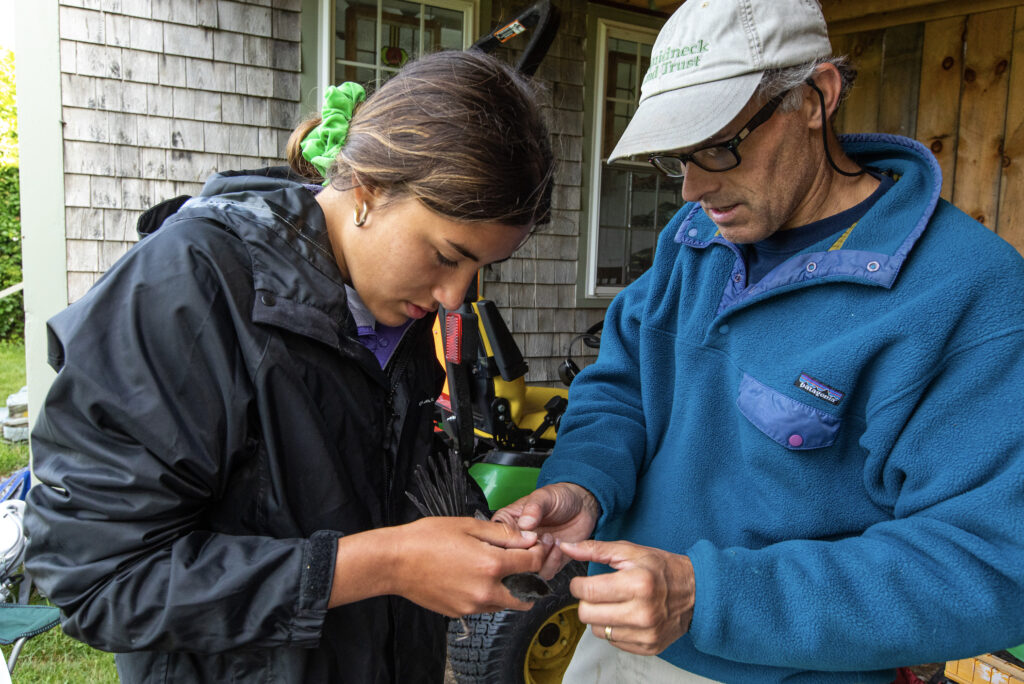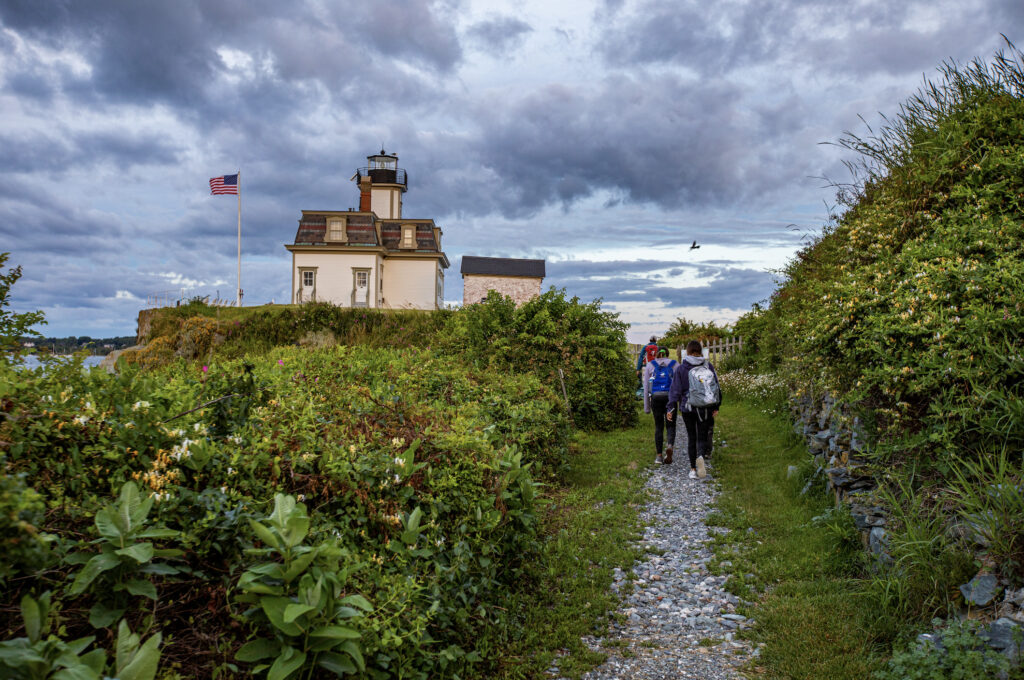Faculty lecture to highlight undergraduate field research program in Narragansett Bay

McKillop Library will host the first of its faculty lecture series for the 2021-22 academic year, and this one is about an ongoing interdisciplinary undergraduate field research program in Narragansett Bay.
The lecture will be given by Dr. Jameson Chace, professor of biology and chair of cultural, environmental and global studies; Dr. Craig Condella, professor and chairman of philosophy; and Dr. Jeroen van den Hurk, assistant professor and program director of cultural and historic preservation. It will be held on Monday, Sept. 27, from 4-5:30 p.m. in the east wing of the library.
Narragansett Bay is comprised of many small, uninhabited islands that have a long history of pre-contact and post-contact human use, and they are now protected and managed by the Rhode Island’s Department of Environmental Management and other non-profit entities. Dr. Chace, Dr. Condella and Dr. van den Hurk will be sharing their experiences in developing an undergraduate field research program on Rose Island in Narragansett Bay, which has happened through a partnership with the Rose Island Lighthouse Foundation and the Fort Hamilton Trust (RILFHT).

Students must take a boat in order to get to Rose Island, which is not easily accessible to the public.
Rose Island in particular is the ideal starting point for research because its an active conservation area. Under the guidance of lead investigators, areas of research by summer interns have included breeding biology and reproductive success of birds, vegetative surveys, documentation and interpretation of architectural and human history, and preparation and implementation of educational materials for visitation by public school students in Newport, Rhode Island.
Just one area of focus in these research projects consists of tracking birds and their usage of Rose island, according to Dr. Chace.
“These birds on Rose Island are are actually doing very well, even though the island is covered in invasive species,” explained Dr. Chace. “We often think of invasive plant species as being really bad. And yet on that island birds seem to do very well there, even though they are surrounded by non-native plants. This is important, because we are in the middle of a biodiversity crisis — an extinction crisis. Since 1970, we’ve lost somewhere on the order of about three billion birds.”

One of the many research projects on Rose Island included bird banding to help track bird migration patterns.
Small patches of habitat like Rose Island can be absolutely critical to the success of of birds and other species, which is one of the key reasons so much research is being done in the area, according to Dr. Chace.
“We’re there both in terms of the rich history, but also the natural history of that island,” he said. “This research might help inform us about what is taking place on the mainland.”
Find a listing of upcoming events from McKillop Library here. For any additional questions, please contact Gretchen Sotomayer at gretchen.sotomayor@salve.edu.


